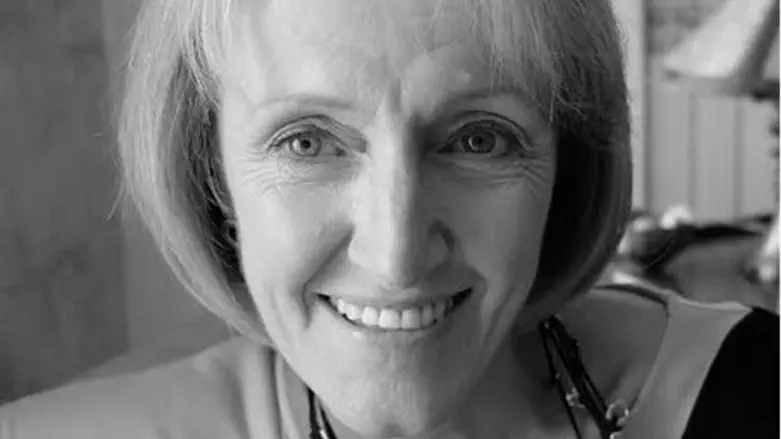
This is the third and final installment of a three-part series. For part two, click here.
Family ties can be complicated, no less and especially for converts to Judaism. The Torah often demands kindness for converts alongside other people who are without kin: widows and orphans.
The reasons for that association are abundantly clear according to Yosefah Ashirah, the coauthor along with Michaela Lawson of Spark Ignited: The Difficult Journey to Orthodox Judaism: The Pearls & The Perils. However, it became even more so after making the trip to Israel and converting on her own.
“We really are orphans. We really are. Jews love to play Jewish genealogy. When sitting around the Shabbat table asking if you're related to so and so or do you know so and so - I can't do that. Even though when my own daughter visits, she will say 'I am almost jealous.' She says 'you've got such a family here.’ Despite that network there are still those times that I feel I don't have a Jewish family here because holidays are such family times. As much as I have been accepted, there's still that bit of 'I can't really say that I am related to so and so.'”
Whats worse, “there are always some people who feel you're insincere based on those cases where someone breaks through who isn’t.”
It is that reputation - and her experience seeing the doubts of her peers given her devout past - that leads her to speak out now. She refers to the Halakha (Jewish law) not to ask converts about their backgrounds prior to Judaism for fear of embarrassing them.
“My Rabbi asks me 'Why do you talk about it? Why do you do interviews?' I feel that I need to for the sake of both Jews and for the sake of non-Jews who might be considering a choice between a conversion and remaining a ben or bat Noah. Hashem has put me in a position where I might help them to make that choice.”
She speaks of a blossoming movement with membership that might reach into six-digit figures. In the past only a few Rabbis lent support, but now she can think of at least a dozen prominent Rabbinical figures who are investing their own resources.
“You can't give up because you're like Avraham. You've burned the idols," she tells her students.
But her path would not have been possible without one painful sacrifice.
“This cost me a marriage. I was married. My husband picked me up at the airport, we went to dinner and I started describing to him everything I could about Israel. He looked at me and said 'I did not marry a Jew,’ and he told me to get out. I could not have converted if that hadn't happened.”
Yosefah is grateful for that sudden clarity – and the ease of the divorce considering her husband was a lawyer. She emphasizes that it was a very difficult situation for everyone involved, but it was painless and since the divorce, they have become friends again.
“We’re friends today! He was very tolerant of my learning Torah in the house with a group of 20 or so people for seven years, but at that point he couldn't do it anymore. He was very angry. Today we’re best friends! He’s getting married in a couple months.”
Yosefah closed our interview by noting that her family’s own origins are murky, but in light of the limited research that her family is done, she knows that little is known of them before the 1700s, with the glaring exception the family left London around 1290 - the same year Jews were expelled from the city.
“I had a fascinating thing happen with one emissary of a prominent Rabbi,” she tells.
Yosefah was on a trip to the Interior Ministry to sort out visa information to stay in Israel. “I was sitting in the office of this Rebbetzin who was working as a lawyer in the Interior Ministry, when she got a phone call. She came back in and told me, ‘A very prominent Rabbi just called me.’ He told her to tell me ‘there is a woman with you right now who wants to convert to Judaism. Tell her that her mother was Jewish.’”
But, says Yosefah, “I never spoke to him.”
When she prodded the Rebbetzin for the Rabbi’s name, she refused to divulge. But based on what she knew of the Rebbetzin, she had a pretty decent idea it was likely a prominent Kabbalist.
“’Who? It doesn’t matter who,’ she told me. But I knew her father was close to Rabbi [Yitzhak] Kaduri.”
Suffice to say, she got the visa.